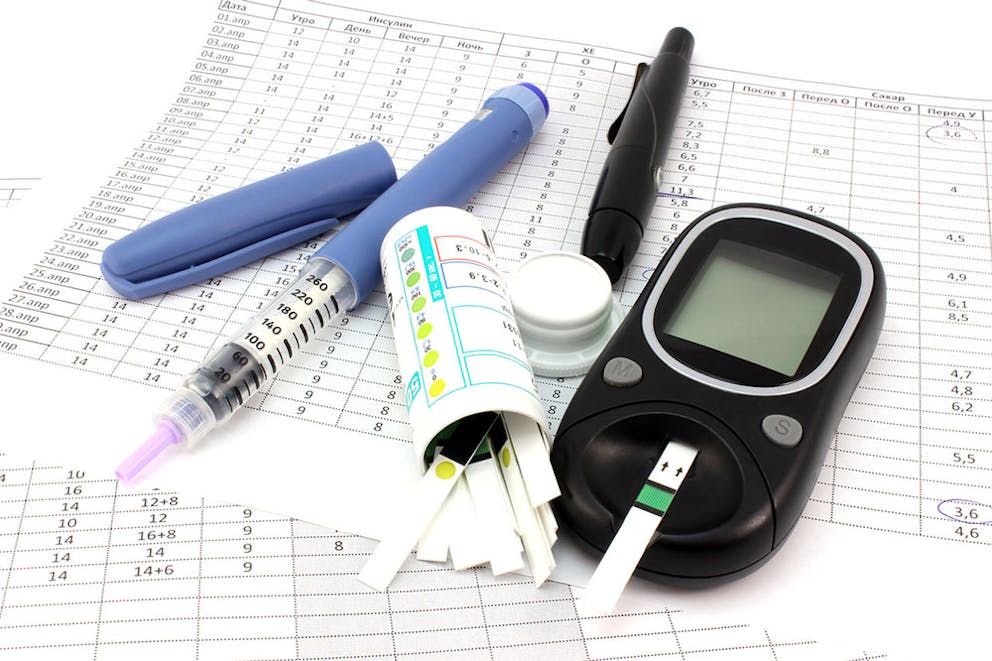Why Take Apple Cider Vinegar (AVC) Before Bed

25 Top Home Remedies That Really Work
Explore powerful home remedies for common health issues
Discover how to use everyday household ingredients to address minor ailments
Get practical tips for the safe and effective use of home remedies

25 Top Home Remedies That Really Work
Explore powerful home remedies for common health issues
Discover how to use everyday household ingredients to address minor ailments
Get practical tips for the safe and effective use of home remedies

25 Top Home Remedies That Really Work
Explore powerful home remedies for common health issues
Discover how to use everyday household ingredients to address minor ailments
Get practical tips for the safe and effective use of home remedies

25 Top Home Remedies That Really Work
Explore powerful home remedies for common health issues
Discover how to use everyday household ingredients to address minor ailments
Get practical tips for the safe and effective use of home remedies

25 Top Home Remedies That Really Work
Explore powerful home remedies for common health issues
Discover how to use everyday household ingredients to address minor ailments
Get practical tips for the safe and effective use of home remedies

25 Top Home Remedies That Really Work
Explore powerful home remedies for common health issues
Discover how to use everyday household ingredients to address minor ailments
Get practical tips for the safe and effective use of home remedies

25 Top Home Remedies That Really Work
Explore powerful home remedies for common health issues
Discover how to use everyday household ingredients to address minor ailments
Get practical tips for the safe and effective use of home remedies

25 Top Home Remedies That Really Work
Explore powerful home remedies for common health issues
Discover how to use everyday household ingredients to address minor ailments
Get practical tips for the safe and effective use of home remedies

25 Top Home Remedies That Really Work
Explore powerful home remedies for common health issues
Discover how to use everyday household ingredients to address minor ailments
Get practical tips for the safe and effective use of home remedies

25 Top Home Remedies That Really Work
Explore powerful home remedies for common health issues
Discover how to use everyday household ingredients to address minor ailments
Get practical tips for the safe and effective use of home remedies

25 Top Home Remedies That Really Work
Explore powerful home remedies for common health issues
Discover how to use everyday household ingredients to address minor ailments
Get practical tips for the safe and effective use of home remedies

25 Top Home Remedies That Really Work
Explore powerful home remedies for common health issues
Discover how to use everyday household ingredients to address minor ailments
Get practical tips for the safe and effective use of home remedies

How Does Intermittent Fasting Work?
Understand the science behind intermittent fasting and its health benefits
Learn how fasting impacts metabolism, insulin sensitivity, and hormonal balance
Discover the four stages of intermittent fasting
Get practical tips for integrating fasting into your daily routine

How Does Intermittent Fasting Work?
Understand the science behind intermittent fasting and its health benefits
Learn how fasting impacts metabolism, insulin sensitivity, and hormonal balance
Discover the four stages of intermittent fasting
Get practical tips for integrating fasting into your daily routine

How Does Intermittent Fasting Work?
Understand the science behind intermittent fasting and its health benefits
Learn how fasting impacts metabolism, insulin sensitivity, and hormonal balance
Discover the four stages of intermittent fasting
Get practical tips for integrating fasting into your daily routine

How Does Intermittent Fasting Work?
Understand the science behind intermittent fasting and its health benefits
Learn how fasting impacts metabolism, insulin sensitivity, and hormonal balance
Discover the four stages of intermittent fasting
Get practical tips for integrating fasting into your daily routine

How Does Intermittent Fasting Work?
Understand the science behind intermittent fasting and its health benefits
Learn how fasting impacts metabolism, insulin sensitivity, and hormonal balance
Discover the four stages of intermittent fasting
Get practical tips for integrating fasting into your daily routine

How Does Intermittent Fasting Work?
Understand the science behind intermittent fasting and its health benefits
Learn how fasting impacts metabolism, insulin sensitivity, and hormonal balance
Discover the four stages of intermittent fasting
Get practical tips for integrating fasting into your daily routine

How Does Intermittent Fasting Work?
Understand the science behind intermittent fasting and its health benefits
Learn how fasting impacts metabolism, insulin sensitivity, and hormonal balance
Discover the four stages of intermittent fasting
Get practical tips for integrating fasting into your daily routine

How Does Intermittent Fasting Work?
Understand the science behind intermittent fasting and its health benefits
Learn how fasting impacts metabolism, insulin sensitivity, and hormonal balance
Discover the four stages of intermittent fasting
Get practical tips for integrating fasting into your daily routine

How Does Intermittent Fasting Work?
Understand the science behind intermittent fasting and its health benefits
Learn how fasting impacts metabolism, insulin sensitivity, and hormonal balance
Discover the four stages of intermittent fasting
Get practical tips for integrating fasting into your daily routine

How Does Intermittent Fasting Work?
Understand the science behind intermittent fasting and its health benefits
Learn how fasting impacts metabolism, insulin sensitivity, and hormonal balance
Discover the four stages of intermittent fasting
Get practical tips for integrating fasting into your daily routine

How Does Intermittent Fasting Work?
Understand the science behind intermittent fasting and its health benefits
Learn how fasting impacts metabolism, insulin sensitivity, and hormonal balance
Discover the four stages of intermittent fasting
Get practical tips for integrating fasting into your daily routine

How Does Intermittent Fasting Work?
Understand the science behind intermittent fasting and its health benefits
Learn how fasting impacts metabolism, insulin sensitivity, and hormonal balance
Discover the four stages of intermittent fasting
Get practical tips for integrating fasting into your daily routine
Exploring the relationship between apple cider vinegar and blood sugar reveals a fascinating intersection of nutrition science and natural remedies.
Discover how the acetic acid in apple cider vinegar influences glycemic control, providing valuable insights for those keen on health optimization.
Learn about how the process of gluconeogenesis also plays a significant role in our overall health and complex metabolic pathways, and how consuming apple cider vinegar can modulate it.
By understanding these intricate connections between apple cider vinegar consumption and blood sugar control, you can make informed dietary decisions that support your wellness journey.
The Magic of Acetic Acid in Apple Cider Vinegar
Apple cider vinegar (ACV) has gained popularity as a health tonic, and its key ingredient, acetic acid, is the secret behind its remarkable properties. This potent compound possesses anti-glycemic abilities that can positively impact our health.
Understanding the Anti-Glycemic Properties of Acetic Acid
One of the remarkable features of ACV is its ability to regulate blood sugar levels. After meals, when blood sugar tends to spike, acetic acid steps in to mitigate this effect. Additionally, consuming ACV before bedtime has shown promising results in managing blood sugar levels overnight.
Acetic acid, found abundantly in ACV, acts as a guardian against sudden spikes in blood sugar. By slowing down the process of digestion, it ensures that carbohydrates are not rapidly absorbed into the bloodstream.
Simply put, ACV has anti-glycemic properties that slow down digestion and prevent blood sugar spikes.
How Acetic Acid Influences Blood Sugar Levels Post-Meal
After indulging in a carb-heavy meal, many of us experience that dreaded blood sugar spike. Apple cider vinegar (ACV) may just be the solution to help stabilize those post-meal sugar levels.
Digestion Delay: The acetic acid found in ACV slows down the emptying of your stomach, resulting in a slower absorption of carbohydrates. This means that the surge in blood sugar levels after a meal is less dramatic, helping to keep them within a healthier range.
Gluconeogenesis Inhibition: ACV also has the impressive ability to hinder excessive gluconeogenesis, a process where the liver produces glucose from non-carbohydrate sources. By putting a stop to this, ACV prevents your fasting glucose levels from rising too high.
Satiety Enhancement: Consuming ACV has been shown to enhance feelings of fullness, which can aid in controlling calorie intake and, consequently, blood sugar levels. T
Incorporating apple cider vinegar into your daily routine isn't just beneficial for those managing diabetes or prediabetes. It's a simple yet effective strategy that anyone can adopt to support their overall health. And it's all thanks to the remarkable properties of acetic acid found in this common kitchen staple.

Dawn Phenomenon - Morning High Blood Sugars
Waking up with very high glucose levels is known as the 'dawn phenomenon' or 'dawn effect,' and can be a warning sign for your health. ACV can help prevent this phenomenon and keep you waking up with normal glucose levels.
What is the Dawn Phenomenon?
The dawn phenomenon is when your blood sugar levels are unusually high between 2:00 am and 8:00 am.
For individuals with diabetes or those struggling with insulin resistance, the dawn phenomenon can transform into a blood sugar rollercoaster that becomes challenging to manage.
Role of Apple Cider Vinegar in Regulating Morning Blood Sugars
Apple cider vinegar (ACV) steps in as a potential solution to manage early-morning blood sugar spikes. Consuming ACV before bedtime may help regulate these spikes effectively.
Thanks to its acetic acid content, ACV possesses remarkable anti-glycemic properties that work to slow down starch digestion and reduce the glycemic index of foods.
This makes it an effective ally against post-meal spikes and the dawn phenomenon.
To harness the benefits of ACV, simply try incorporating a tablespoon or two into warm water before bedtime. It's essential to monitor your response to determine the effectiveness of this routine for your individual needs.
Before making any dietary changes, it is important to consult a healthcare professional.
Gluconeogenesis
Let's delve into the world of blood sugar control and meet gluconeogenesis, a key player in this intricate process. Gluconeogenesis is like a special power in your body, creating glucose from things that aren't carbs. This happens mostly in your liver, with a bit in your kidneys too.
The Gluconeogenesis Process
Gluconeogenesis is your body's way of making glucose when you need it but don't have enough carbs to fuel you. It transforms things like lactate, glycerol, and amino acids into glucose, which your body uses for energy.
This process is crucial for keeping your blood sugar levels steady, especially when you're not eating or when you're exercising hard. However, too much gluconeogenesis can lead to problems like insulin resistance or prediabetes. It's important to keep this process in balance for your overall health.
Apple Cider Vinegar and Gluconeogenesis
Let's discuss a kitchen staple that could play a role in controlling gluconeogenesis: apple cider vinegar (ACV).
According to a study published in the Diabetes Care Journal consuming ACV before bedtime helped improve morning blood sugar levels in individuals with type 2 diabetes. ACV appears to curb excessive gluconeogenesis overnight, contributing to better glycemic control.
Moreover, ACV slows down gastric emptying, which can help stabilize post-meal blood sugar spikes. This means individuals with high or low blood sugar levels might benefit from ACV.
Dosage: While the optimal ACV dosage for regulating gluconeogenesis is still under investigation, experts recommend starting with a small amount, such as one teaspoon mixed into water, and gradually increasing based on personal tolerance.
Timing: Research suggests that consuming ACV at night before bedtime may provide the greatest benefits.
Note: Always dilute ACV before sipping it down. Its high acidity can harm tooth enamel and irritate your throat if undiluted.
Incorporating ACV into your diet may help manage certain aspects of blood sugar regulation, including taming excessive gluconeogenesis.
However, it's crucial to consult your healthcare provider before ditching your prescribed medications or relying solely on ACV as a treatment method.
Enhancing Insulin Sensitivity with AVC
Add some apple cider vinegar to your evening regimen if you're looking for a natural way to regulate blood sugar. ACV has tons of health benefits, including improving insulin sensitivity.
Improving Insulin Resistance with Apple Cider Vinegar
Insulin resistance is when your body's cells don't respond well to insulin, making it hard to absorb glucose from your blood. This can lead to high blood sugar levels and potentially type 2 diabetes or prediabetes.
A study in Diabetes Care found that taking vinegar before bed reduces fasting glucose levels in people with type 2 diabetes. This suggests that ACV can make insulin work better and more efficiently.
To improve insulin resistance with ACV:
Mix two tablespoons of raw, unrefined apple cider vinegar with some water.
Drink this mixture before bedtime.
Add honey or lemon juice for taste if you like.
Managing Hyperglycemia and hypoglycemia through Enhanced Insulin Sensitivity
ACV can also help manage high and low blood sugar levels by enhancing insulin sensitivity. People with hyperglycemia have difficulty utilizing insulin effectively, resulting in elevated blood glucose levels.
Conversely, when there is an overabundance of insulin in the bloodstream due to excessive release after meals, it can lead to hypoglycemia.
The acetic acid in ACV has been shown to slow down gastric emptying, which helps prevent rapid spikes and crashes in blood sugar levels. It also promotes satiety, which is essential for managing these conditions effectively.
While ACV can complement prescribed medication, it should not replace it. Always consult healthcare professionals for guidance.

The mechanism behind apple cider vinegar's effectiveness in stopping leg cramps.
The exact mechanism behind apple cider vinegar's effectiveness in stopping leg cramps is not fully understood. While anecdotal evidence suggests its potential benefits, scientific research on this topic is limited.
Leg cramps can be caused by muscle fatigue, dehydration, or mineral imbalances.
Apple cider vinegar contains small amounts of potassium, calcium, and magnesium, essential minerals for muscle function. It is believed that these minerals may contribute to alleviating leg cramps.
However, further studies are needed to investigate the specific mechanisms and determine the extent of apple cider vinegar's impact on leg cramp relief.
If you experience persistent leg cramps, it is recommended that you consult with a healthcare professional for proper evaluation and personalized treatment options.
Conclusion
Did you know drinking apple cider vinegar can help lower blood sugar levels? In conjunction with a healthier lifestyle, adding ACV to your dietary plan can help you get control of your blood sugar levels quickly.
Apple cider vinegar doesn't just lower blood sugar but also has other excellent benefits. Studies have shown that apple cider vinegar can reduce cholesterol levels and improve insulin sensitivity.
Remember, don't just pour it straight into your mouth - dilute ACV with water to protect your teeth.
Supporting Data
Previous blog
Fixing Lumbar Disc PainTags

Popular
08/21/2024
55K views
02/23/2025
46.3K views
11/18/2024
277.5K views
03/18/2024
11/21/2022




